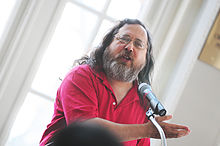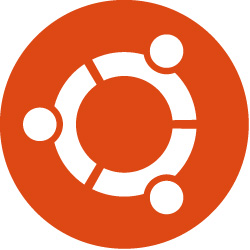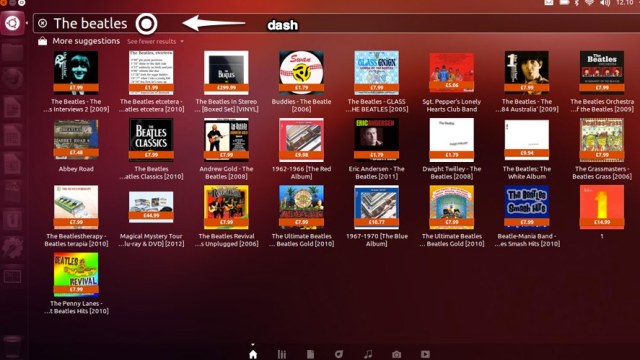Free software leader Richard Stallman claims Ubuntu amounts to spyware with Amazon search integrated into the “dash” of its Unity interface. He is calling for developers to shun the open-source operating system.
Canonical is the company behind Ubuntu. Stallman says the advertising search results amount to surveillance and argues that personal data is on Canonical’s servers. While Canonical does not send the data back to Amazon, the fact that the data resides on Canonical’s systems is enough for Stallman.
Stallman, who has huge influence as the leader of the Free Software Foundation, said this in a blog post today:
Ubuntu, a widely used and influential GNU/Linux distribution, has installed surveillance code. When the user searches her own local files for a string using the Ubuntu desktop, Ubuntu sends that string to one of Canonical’s servers. (Canonical is the company that develops Ubuntu.)
 At his most impassioned, he calls for users to reject Ubuntu:
At his most impassioned, he calls for users to reject Ubuntu:
If you ever recommend or redistribute GNU/Linux, please remove Ubuntu from the distros you recommend or redistribute. If its practice of installing and recommending nonfree software didn’t convince you to stop, let this convince you. In your install fests, in your Software Freedom Day events, in your FLISOL events, don’t install or recommend Ubuntu. Instead, tell people that Ubuntu is shunned for spying.
While you’re at it, you can also tell them that Ubuntu contains nonfree programs and suggests other nonfree programs. (See http://www.gnu.org/distros/common-distros.html.) That will counteract the other form of negative influence that Ubuntu exerts in the free software community: legitimizing nonfree software.
Canonical CEO Mark Shuttleworth has labeled these kinds of accusations as “FUD.” In a September blog post, He wrote:
In 12.10 we’ll take the first step of looking both online and locally for possible results. The Home lens will show you local things like apps and music, as it always has, as well as results from Amazon. Note – these are not ads, they are results to your search. We don’t promote any product or service speculatively, these are not banners or spyware. These are results from underlying scopes, surfaced to the Home lens, because you didn’t narrow the scope to a specific, well scope.
Jono Bacon, who runs community management at Canonical, called out Stallman in his own blog post today. Here he articulates what Canonical is seeking to do:
The goal of the dash in Ubuntu has always been to provide a central place in which you can search and find things that are interesting and relevent to you; it is designed to be at the center of your computing experience. Now, this is a big goal, and we are only part-way along the way to achieving it.
Today it is not perfect – we need to improve the accuracy of the results, present the data more effectively, and continue to expand the coverage and capabilities of the data in dash searches. With each new release of Ubuntu we get awesome feedback from our community and users and we strive to refine and iterate on all of these areas so that subsequent releases offer a more and more compelling experience, freely available and sharable for all.
Stallman joins a chorus of critics who have decried the Amazon integration.
Stallman believes that non-free software has no place in open source. He has fierce opinions about the way open-source should be developed. And like anyone with impassioned views, Stallman has his proponents and critics.
I get what Canonical is trying to do, but Amazon just doesn’t seem like a cultural fit with Ubuntu. Amazon embraces proprietary technology – Ubuntu is a Linux distribution. But should there be a delineation, open or not?

